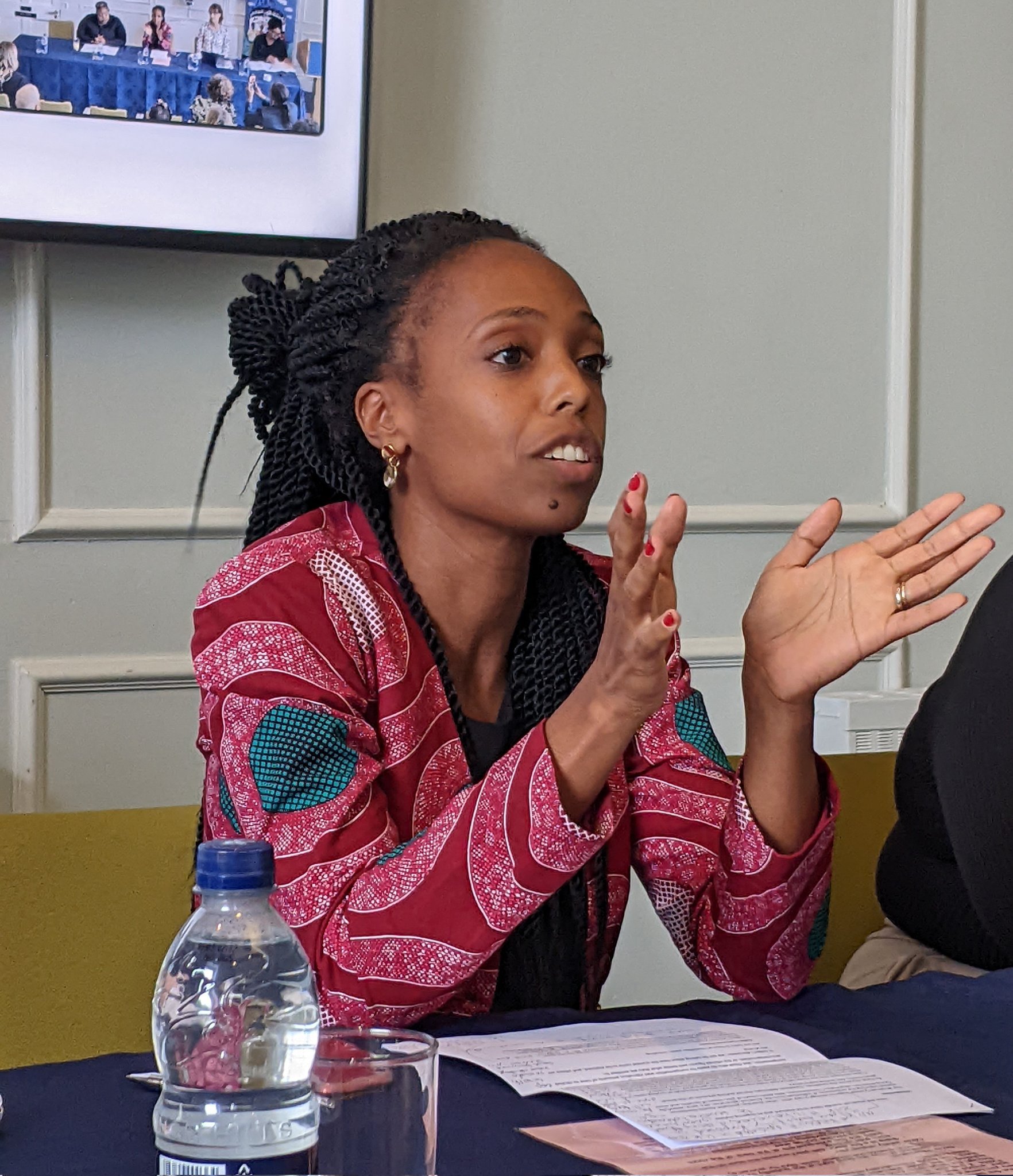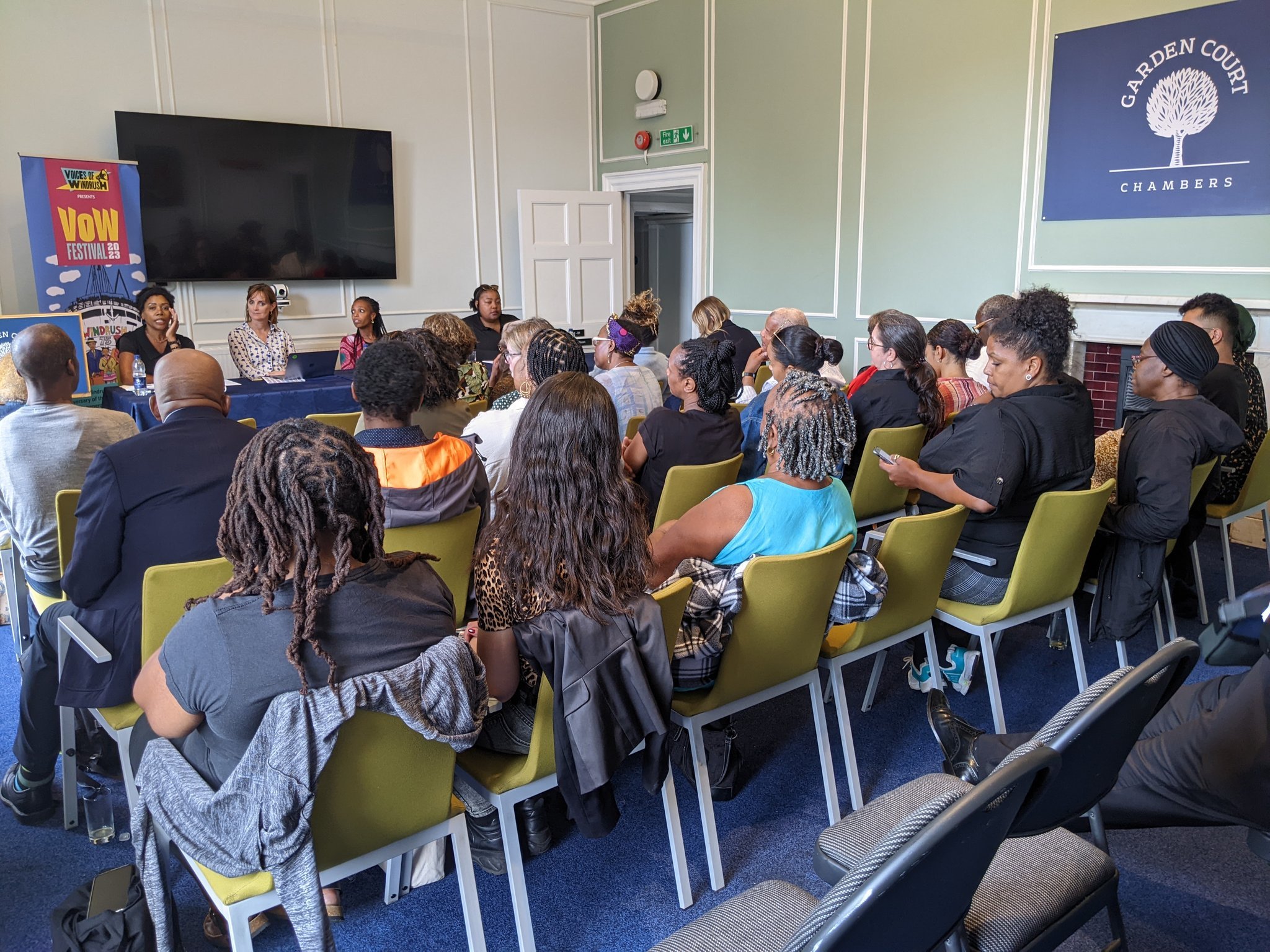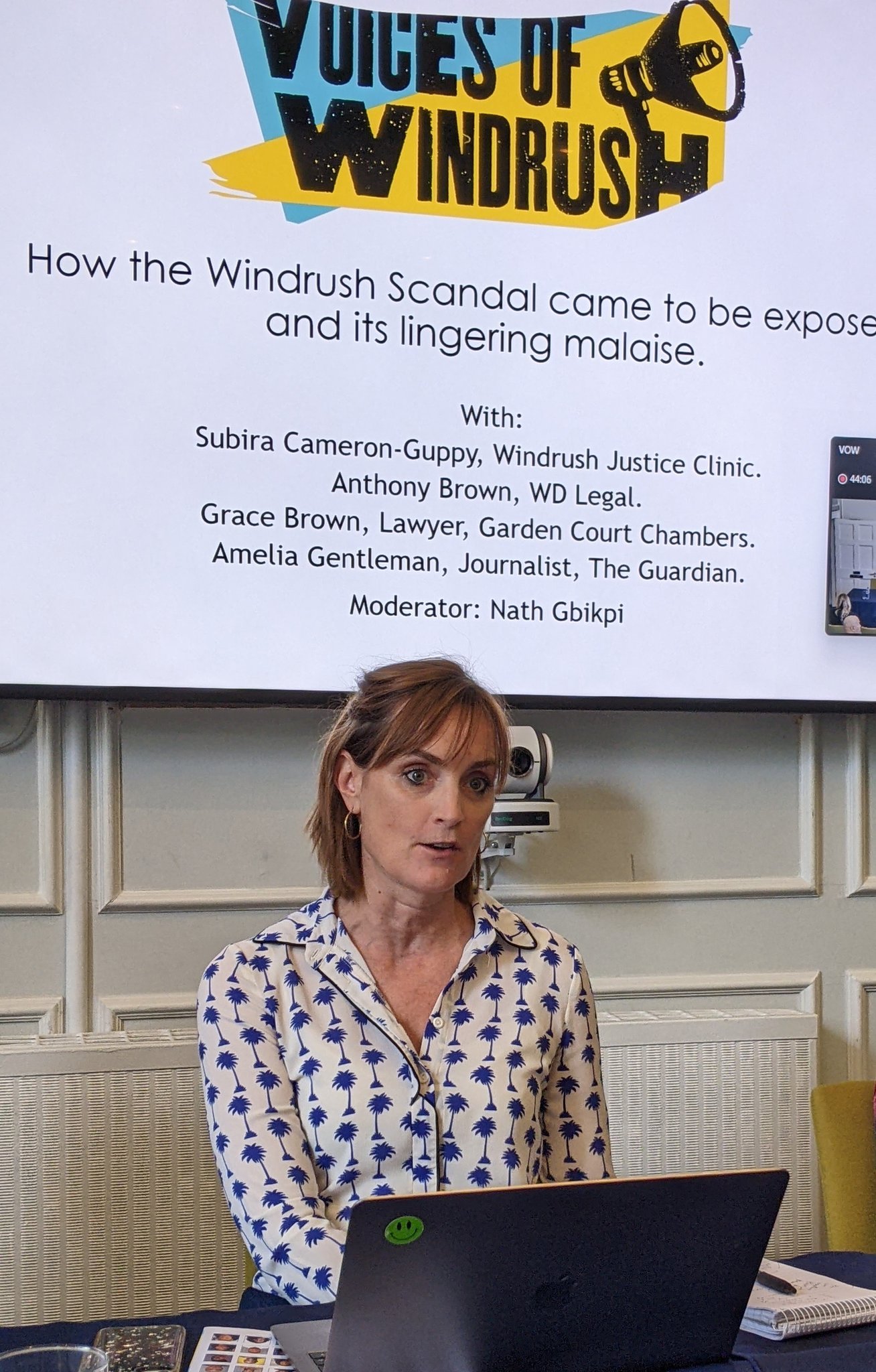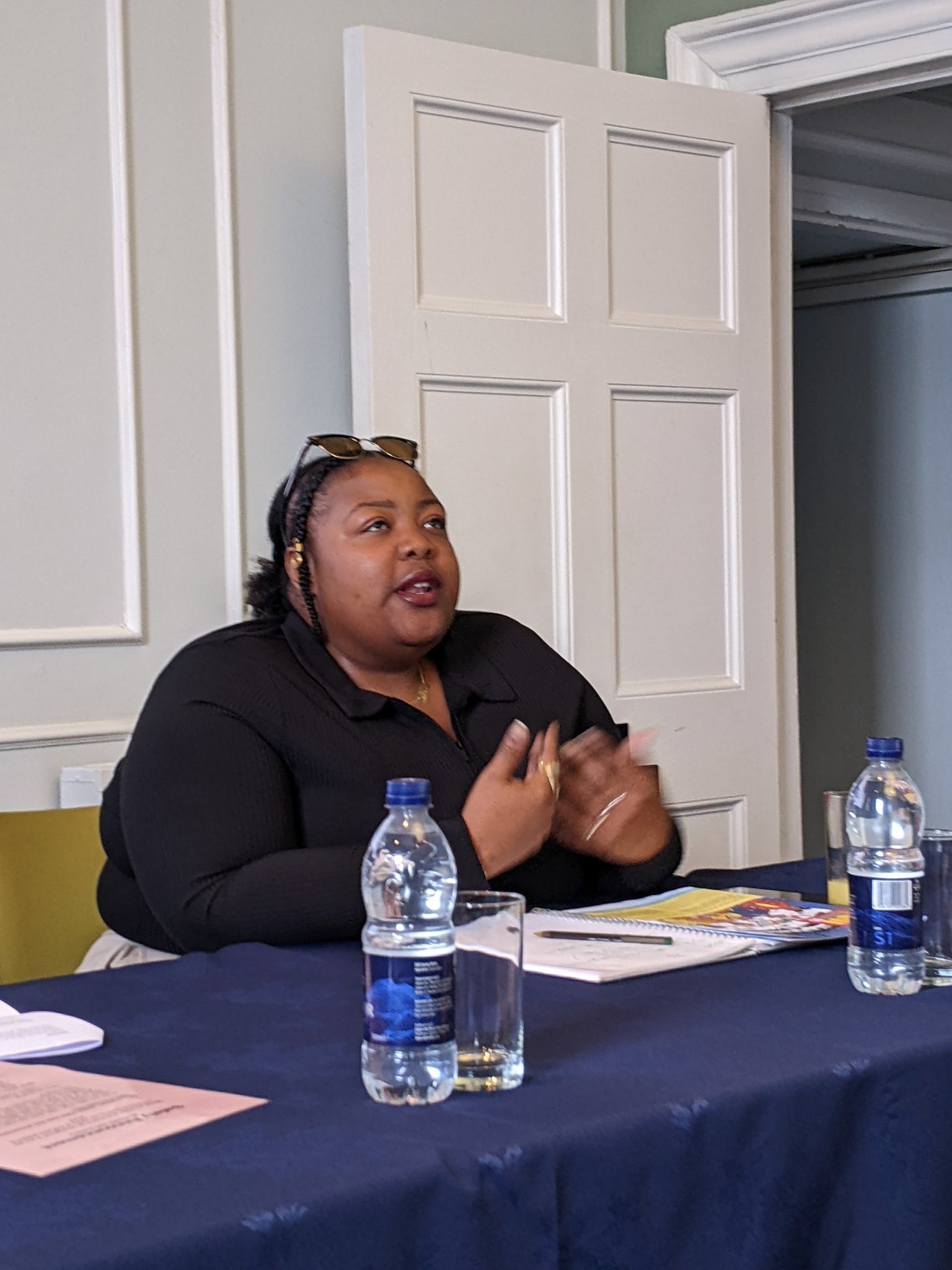How the Windrush Scandal Came to be Exposed
Nath Gbikpi, Solicitor at Leigh Day, introduced the #VoicesofWindrushFestival: How the Windrush Scandal Came to be Exposed & its Lingering Malaise, at Garden Court Chambers last night, described the history, legislative changes & the implications for those affected.
Amelia Gentleman, a reporter at the Guardian & author of The Windrush Betrayal, described how she uncovered the scandal after receiving a call about Paulette Wilson (now deceased), who despite arriving in the UK age 10 in 1966, was detained in Yarlswood & faced deportation. Amelia thought that with hindsight, it was problematic that the Home Office, the organisation responsible for the problems in the first place, was in charge of the schemes providing redress.
Grace Brown, a barrister at Garden Court Law, explained the law & practice & provided case studies. She thought the Compensation Scheme needed independent oversight which in her mind, isn't being injected by the role of the independent adjudicator. Grace remains concerned at the lack of flexibility & discretion being adopted by the Home Office in dealing with both immigration status & compensation. She thought the complexity of the schemes & rigidity adopted, required legal support & the provision of legal aid.
Grace remarked that the Home Office have all the resources available to them yet claimants are invariably relying on the good nature of people who work pro Bono or in their spare time, causing people to fall through the cracks.
Subira Cameron - Guppy of Claudia Jones Organization & the Windrush Justice Clinic, spoke of her clients past trauma, compounded by the ongoing difficulties experienced in dealing with the Home Office. Not only are her clients exhausted but so are those working with them. Subira thought it instructive that the Home Office has apologised to Caribbean heads of state, but not to those actually affected. The inconsistencies in the decision making was particularly galling as was the lack of a relationship with caseworkers post decision.
Audience members told of their own experiences, concerns about the numbers of people dying without a resolution, the discovery of the repatriation of people with mental health problems, & the fact that 5 years after the scandal, we really don't know the full impact of it, the numbers truly affected, the reasons why both the schemes involving status & compensation remain beleaguered in parts, and the tasks ahead for those working with the victims of the Windrush Scandal, including looking at the options for more strategic litigation.






